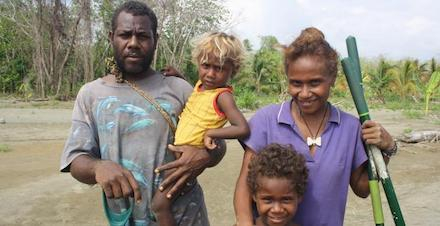Climate Change Adaptation in Asia and the Pacific: Is Gender Relevant?

Is gender a consideration for your program, project or research? Now is the time to reflect on this. Women are often portrayed as more vulnerable to the impacts of climate change in Asia and the Pacific, with less information available about how to respond and adapt. Some adaptation options may put a disproportionate burden on women, particularly in agriculture.
This symposium is an opportunity to explore the role, influence and impact of gender on climate change adaptation, using a combination of presentations, performances, videos, artworks and audience Q&A sessions.
The event is highly recommended for anyone working on programs, projects or research in Asia and the Pacific, including policymakers, practitioners, students, researchers, NGOs, the diplomatic community, consultants and members of Pacific and Asian communities who are at the forefront of adapting to our changing climate.
Participants will explore indigenous ways of being, knowing and doing with reference to climate adaptation in Asia and the Pacific, examine the roles of women in adaptation actions and evaluate the role of gender in resilience and adaptation research.
Ultimately the symposium aims to take the first steps towards developing a research agenda on gender and climate change in Asia and the Pacific.
Program
8.30-9am - Registration and tea and coffee
9am - Welcome and Introduction
- Welcome to Country - Tjabal Centre
- Screening of short film - 'Rise: From One Island to Another' by Kathy Jetnil-Kijiner
9.25 – 10.35am – Session 1 - The Role of Gender in Climate Change Adaptation
- Introduction by Chair
- Gendered social relations in the Anthropocene - Dr. Jayne Curnow (ACIAR)
- Climate change adaptation strategies to enhance food security - Prof Mark Howden (ANU Climate Change Institute)
- Engendering climate change in Oceania: Fatalism, resilience and resistance - Prof Margaret Jolly (ANU Gender Institute)
- Discussion based on audience questions
10.35 - 11.05am - Morning Tea
11.05am - 12.40pm - Session 2 - Reflections on Resilience - Knowledge to Action and Action to Knowledge
- Introduction by Chair
- Slam poetry performance: Reflections from the field – Rachel England (Fenner School of Environment & Society, ANU), Myjolynne Kim (ANU College of Asia and the Pacific), Kate Harriden (Fenner School of Environment & Society, ANU)
- Contextualising climate science for food security in Papua New Guinea - Dr Steve Crimp (ANU Climate Change Institute)
- The role of gender in climate change research: key actor or background noise? Drawing from case studies in Asia – Dr. Joyce Wu (Crawford School of Public Policy, ANU)
- Screening of the short-film ‘Tuvalu’ by Angela Tiatia (kindly provided by the Australian Museum)
- Discussion based on audience questions
12.40 - 1.25pm - Lunch
1.25 – 3.00pm – Session 3 - Social Conflict and Marginal Voices: How Are Effective Climate Change Adaptation Outcomes Achieved?
- Introduction by Chair
- How might changing property relations to land and resources be linked to transformations of masculinities in Asia and the Pacific?- Dr. Siobhan McDonnell (Crawford School of Public Policy, ANU)
- Through a glass darkly: is a gender lens always useful? - Dr. Rebecca Monson (ANU College of Law)
- ‘Women at the Water's Edge. Lives of women in a climate changed world’ - Screening of short film and discussion by Dr. Kuntala Lahiri-Dutt (Crawford School of Public Policy, ANU)
- Discussion based on audience questions
3.05 – 3.35pm – Afternoon Tea
3.30 – 4.15pm – Session 4 - Shared Vision - Gender and Climate Change in Asia and the Pacific
- Introduction by Chair, George Carter (Department of Pacific Affairs, ANU)
- Screen 'Hearts for Solo' - Solomon Islands portraits
- Facilitated discussion on setting out a research agenda for gender and climate change adaptation in Asia and the Pacific
4.15-4.30pm - Finale
- Concluding thoughts
- Performance
Photos and videos of participants will be taken during the day. If this is an issue for you, please contact rachel.england@anu.edu.au.
Please note that it is extremely difficult to find parking at ANU during the day - we advise using public transport, taxi, cycling or walking. If you have to drive, arrive early (before 8.40am) and allow plenty of time to find a park and log into the online parking system which can be downloaded here. View visitor parking map
Image credit: ILO in Asia and the Pacific.
This event is co-hosted and funded by ANU Climate Change Institute and the ANU Gender Institute.






